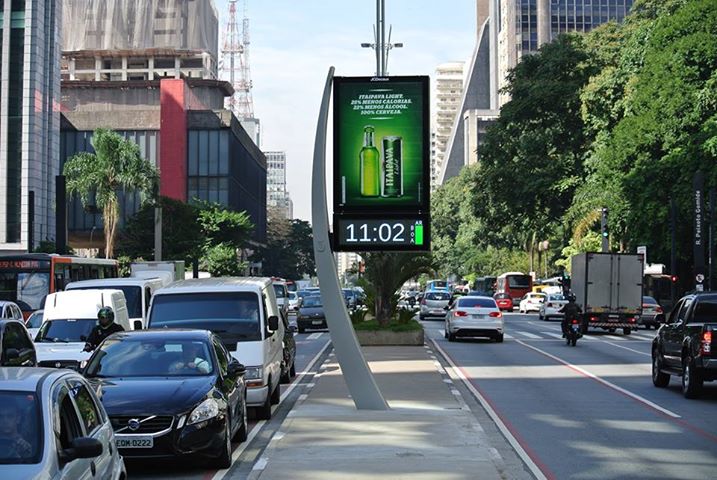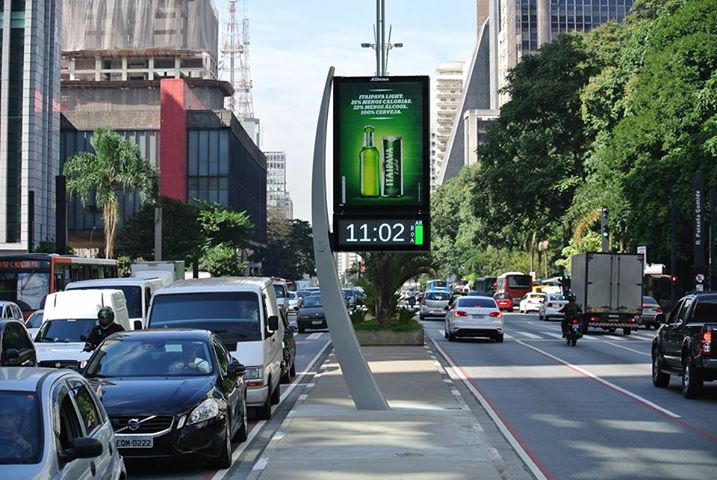Truth and Myths about Sao Paulo and Grenoble
[vc_row type="in_container" full_screen_row_position="middle" scene_position="center" text_color="dark" text_align="left" overlay_strength="0.3" shape_divider_position="bottom"][vc_column column_padding="no-extra-padding" column_padding_position="all" background_color_opacity="1" background_hover_color_opacity="1" column_shadow="none" column_border_radius="none" width="1/1" tablet_text_alignment="default" phone_text_alignment="default" column_border_width="none" column_border_style="solid"][vc_column_text]Sao Paulo in Brazil and Grenoble in France, two cities on two continents that have little in common except that they are often cited examples in discussions about urban outdoor advertising.
Why?
What is the real situation with advertising in Sao Paulo and Grenoble, and did these cities rightfully become symbols for outdoor advertising opponents? We asked Lech Kaczoń, President of the Outdoor Advertising Chamber of Commerce, to present the myths about Grenoble and Sao Paulo.
Myth #1 Sao Paulo is eliminating advertising.
In 2006, in accordance with the vision of then-mayor of Sao Paulo Gilberto Kassab, advertising in the city was reorganized:
* a concept for modern street furniture was developed, including city light poster displays with electronic information panels,
* approximately 18,000 advertising surfaces were removed (15,000 billboard posters of various formats, over 1,600 signs, and nearly 1,300 large display surfaces).
* advertising measuring 1.5 m2 on building facades with a height of 10 meters and advertising measuring 4 m2 on walls with a surface area of 100 m2 were permitted.
Seven years later, at the beginning of 2013, Sao Paulo signed a 25-year contract for conducting advertising activities in the city for two thousand advertising locations, half of which are equipped with electronic installations showing time, air temperature, etc.
The contract was won by Publicrono, whose main shareholder is the global giant JCDecaux.
The city needs advertising, concluded the next mayor of this city, Fernando Haddad. Especially when co-organizing and hosting world-class events (from Miss Universe pageants through the FIFA World Cup to the Olympic Games – Sao Paulo will host several dozen competitions).
At the beginning of 2014, an expansion of the number of advertising carriers to several thousand was agreed upon, as these were the growing needs of the city and business.
Therefore, there is a clear difference between what is stated above and "Sao Paulo issued a complete ban on placing advertisements in public space, and then removed over half a million signs and billboards". This is the message used by people unfriendly to advertising, either unaware or deliberately manipulating information.


Myth #2 Grenoble is eliminating advertising
If I have a fixed-term contract until the end of the year and my boss informs me that it will not be extended, do I go out on the street and shout that I was fired from work?
True, I can, but it would be manipulation.
The information about “removing all outdoor advertising from the streets” in French Grenoble is manipulated in the same way.
The new mayor Eric Piolle, a member of the Green Party, elected in April 2014, announced in his campaign that he would not continue municipal contracts for the use of municipal land for advertising. At no point did he speak of “eliminating all advertising”. One of the contracts ended on December 31, 2014. This concerned an agreement with JCDecaux for operating part of 326 advertising columns and scroll-type carriers (advertising carriers with two or three display surfaces). Part of them, because Grenoble also uses the scrolls to place its own information.
JCDecaux marketing director Albert Asseras said it was a “regrettable decision” because the city of Grenoble had previously sought to implement exactly this system.
It's worth adding that until the end of 2019, another municipal contract will remain in effect, under which JCDecaux installed and operates bus shelters (with one double-sided advertising display). Thanks to revenue from selling display space, the shelters are properly maintained and serve residents. The mayor of Grenoble has no objections to this contract.
Similarly, he has no objections to other advertising surfaces displayed by private entrepreneurs.
Naturally, cities' needs and concepts can change – as in Sao Paulo, as in Grenoble.
It's always about coherent, reasonable, and acceptable concepts regarding advertising and carriers.
They do not mean completely depriving entrepreneurs and residents of advertising. I don't know of such a solution anywhere in the wide world, and neither Sao Paulo nor Grenoble applied it. [/vc_column_text][/vc_column][/vc_row]

